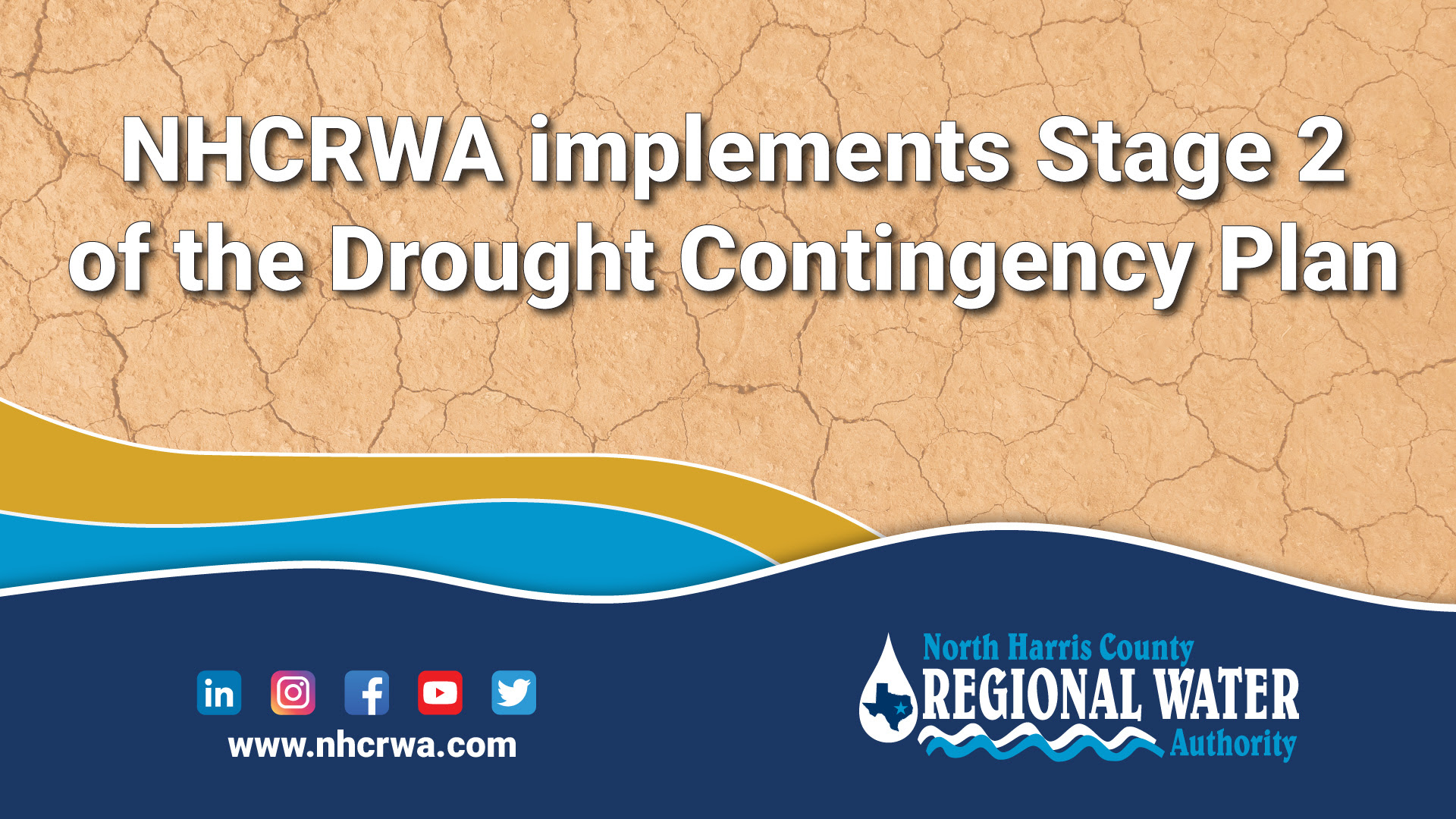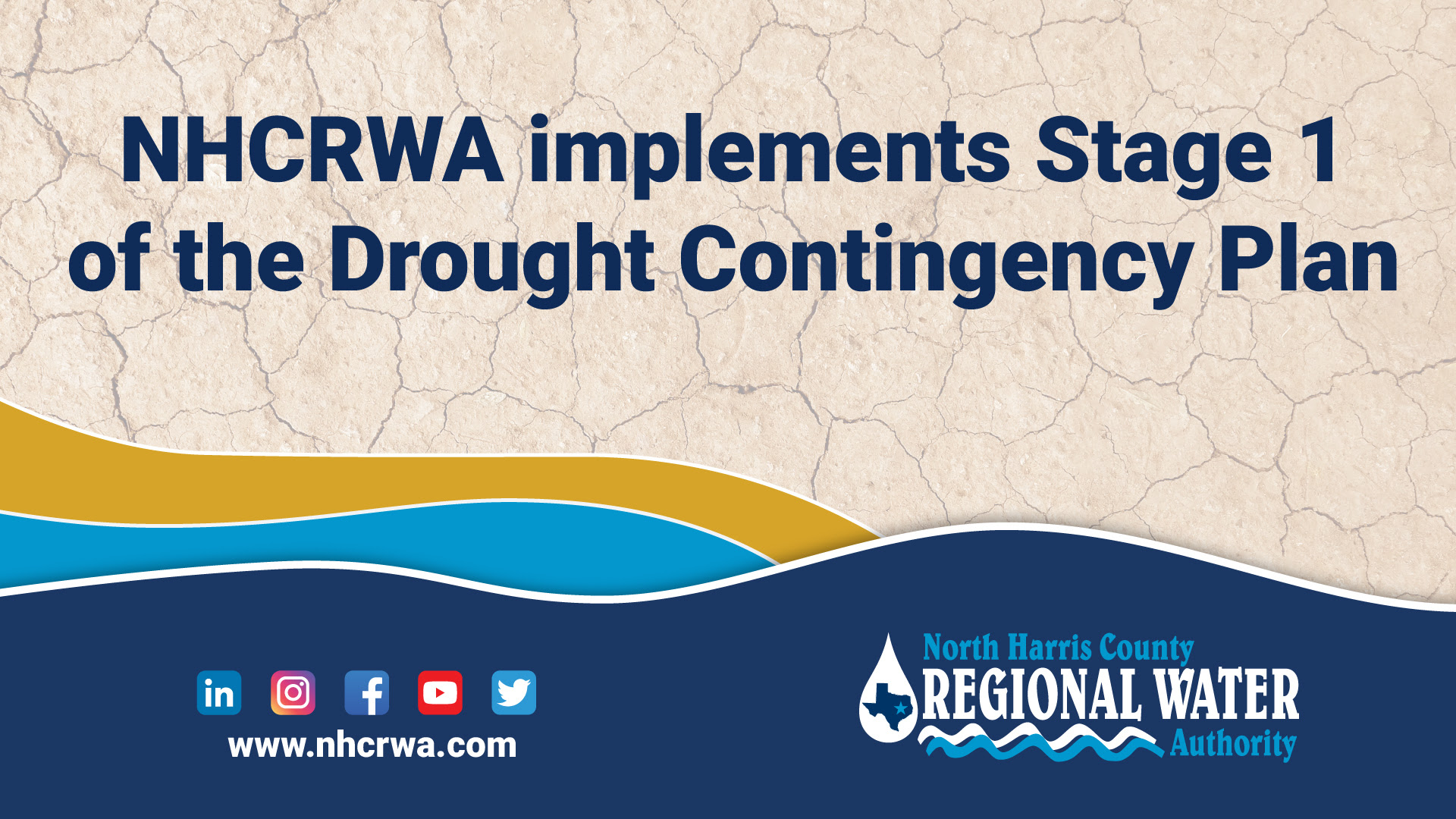Termination of Drought Contingency Stage II, Stage I Remains in Effect
On Friday, October 6, 2023, North Harris County Regional Water Authority issued a notice of termination of Drought Contingency Plan Stage II but Stage I will remain in effect. Signage for this change has been posted throughout our neighborhoods.
At the September 14th Board of Directors meeting, the CCUD Board of Directors revised the CCUD district’s Drought Contingency Plan after receiving feedback from district residents and after reviewing drought contingency plans from other utility districts. The main change affects the timing of allowed outdoor irrigation for households. Also changes were made to the Stage III plan about outdoor irrigation of landscaped areas. See the full newly revised CCUD Drought Contingency Plan.
CCUD Stage 1 Drought Measures under Drought Contingency Plan
Stage 1 Mild Water Shortage Drought Response Measures; Voluntary Water Use Restrictions
Target: Achieve a 5% reduction in daily water demand.
- Water Customers will be asked to voluntarily reduce water use, and will be informed of specific steps that can be taken to reduce water use.
- Water Customers will be advised that mandatory measures may be imposed if the water shortage period continues.
- Water Customers will be asked to check for and repair all leaks, dripping faucets, and running toilets, and will be asked to utilize water conservation measures such as displacement bags, low flow shower heads and leak detection tablets.
Water Customers shall be requested to limit outdoor irrigation between the hours of 12:00 midnight to 5:00 a.m. and 7:00 p.m. to 12:00 midnight on designated watering days (no watering on Mondays).
- Sundays and Thursdays for single family residential customers with even-numbered addresses;
- Saturdays and Wednesdays for single family residential customers with odd-numbered street addresses; and
- Tuesdays and Fridays for all other customers
In the event no street address exists, only Customers living on the north and west side of a street may use water outdoors on even-numbered days and only Customers on the south and east side of a street may use water outdoors on odd-numbered days.



